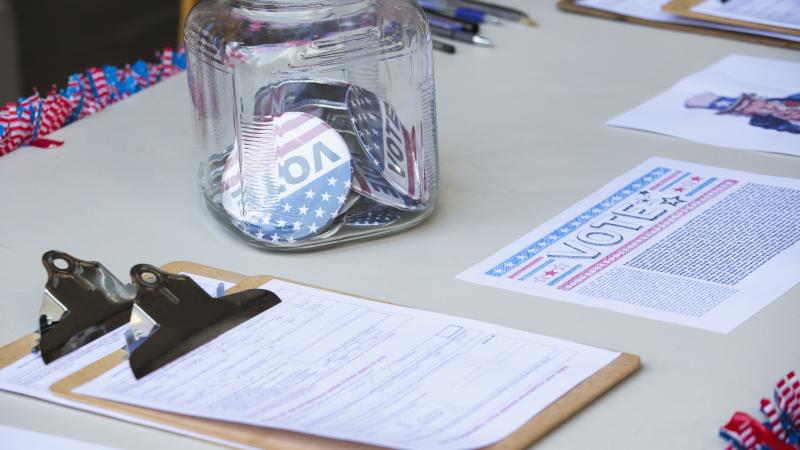Biden-Harris energy policies may cause drop in oil and gas production, even if Trump is elected
Biden leased 95% fewer acres for oil and gas in 2023, versus Trump in 2019. This and many of his policies -- loudly touted by Harris -- will impact production after Biden leaves office next year.
Former President Donald Trump has promised that, if elected, he’ll make America energy independent and “drill baby, drill.”
While a second Trump administration would be far friendlier to the oil and gas industry than the Biden/Harris administration, the full impacts of Biden’s climate-focused policies may not be realized until the next four years, regardless of who is president after the November election.
While the current administration has been hostile to oil and gas production in many ways, the U.S. is producing more oil and gas than any nation in history. Having campaigned in 2019 on a promise to “end fossil fuels,” President Joe Biden hadn’t touted this accomplishment during his campaign.
Vice President and Democratic nominee Kamala Harris has been trying to distance herself from her past record on energy, in which she declared she would ban fracking.
“The Biden-Harris Administration passed the largest ever climate change legislation and under their leadership, America now has the highest ever domestic energy production,” the Harris campaign said in a statement to Politico, in response to questions about her past support of a ban on fracking.
Should Trump’s campaign succeed and usher in an administration that seeks to maintain America’s energy dominance, production in the U.S. may drop nonetheless.
Lack of exploration in the Gulf of Mexico
About 15% of U.S. crude oil production comes from offshore drilling in the Gulf of Mexico. In May, production in the Gulf fell 55,000 barrels per day from the previous month.
Andy McConn, director of commercial intelligence at Enverus, testified at a House Oversight and Accountability subcommittee field hearing in Texas in April. McCoon said that Enverus' forecasts that, with the current slate of approved projects, the Gulf region can keep oil production near flat for only about two years, and exploration drilling, which is needed to replenish discoveries and maintain growth, has been declining at an annual rate of 14% since 2014.
The Bureau of Ocean Energy Management (BOEM) forecasted 2.013 million barrels per day nationwide in 2024. Elmer “Bud” Peter Danenberger, an engineer who spent 38 years in the Department of Interior’s offshore oil and gas program, predicts on his “Bud’s Offshore Energy” blog, that BOEM’s forecast will likely be 200,000 barrels too high.
Danenberger explains that deepwater discoveries in the past six years are a “major concern.” Throughout the Biden administration, there have been between zero and two discoveries, whereas there were an average of four per year under the Trump administration. Without deepwater exploration, there will be less production in the future.
Reduction of oil leases on public land
Onshore production occurs mostly on private land in the U.S., which is shielded from much of the Biden administration’s excesses. However, approximately 11% of all oil and 9% of all natural gas produced in the United States in 2022 was on public land. Biden leased 95% fewer acres for oil and gas in 2023, versus Trump in 2019. This will impact production on public lands after Biden leaves office next year.
“These things do play out over long periods of time, and often what one president does the next president benefits or is harmed by,” Robert Rapier, a chemical engineer and editor in chief of Shale Magazine, told Just the News.
Fracking not enough
Rapier said that the development of fracking, which was a marriage of horizontal drilling and hydraulic fracturing techniques that unleashed small pockets of previously unrecoverable oil from hard rocks deep underground, began under the George W. Bush administration. Oil production went down all eight years of Bush’s presidency. Then, under President Barack Obama, the U.S. saw the largest boom in oil production in U.S. history.
“And that had nothing to do with Obama. It had everything to do with the developments that took place when Bush was in office, but Obama benefited from being in office,” Rapier said.
Rapier said U.S. production is much higher now than it was in the beginning of 2023, but it has been flattened in the past 10 months. He said it was high enough in the earlier part of the year that we’re still likely to hit a record in 2024. Come next year, Rapier said, regardless of who is president, we’re likely to see a drop in production.
The Facts Inside Our Reporter's Notebook
Links
- drill baby, drill
- Biden/Harris administration has been
- producing more oil and gas than any nation in history
- end fossil fuels
- her past record on energy
- said in a statement to Politico
- field hearing in Texas
- McCoon said
- (BOEM) forecasted 2.013 million barrels per day nationwide in 2024
- Budâs Offshore Energy
- mostly on private land
- 95% fewer acres
- Shale Magazine
- went down all eight years
















